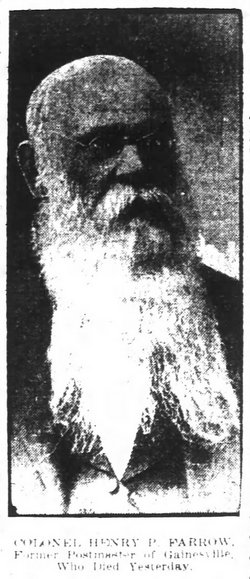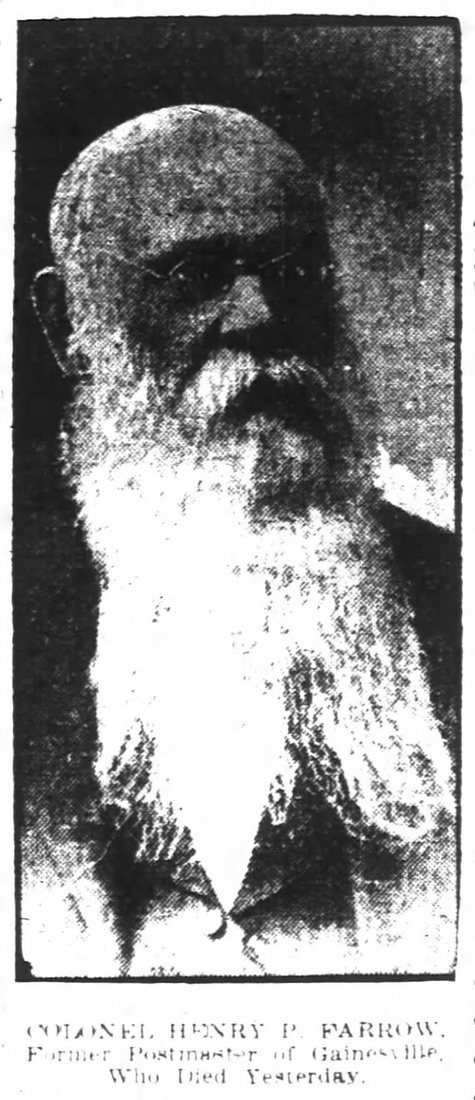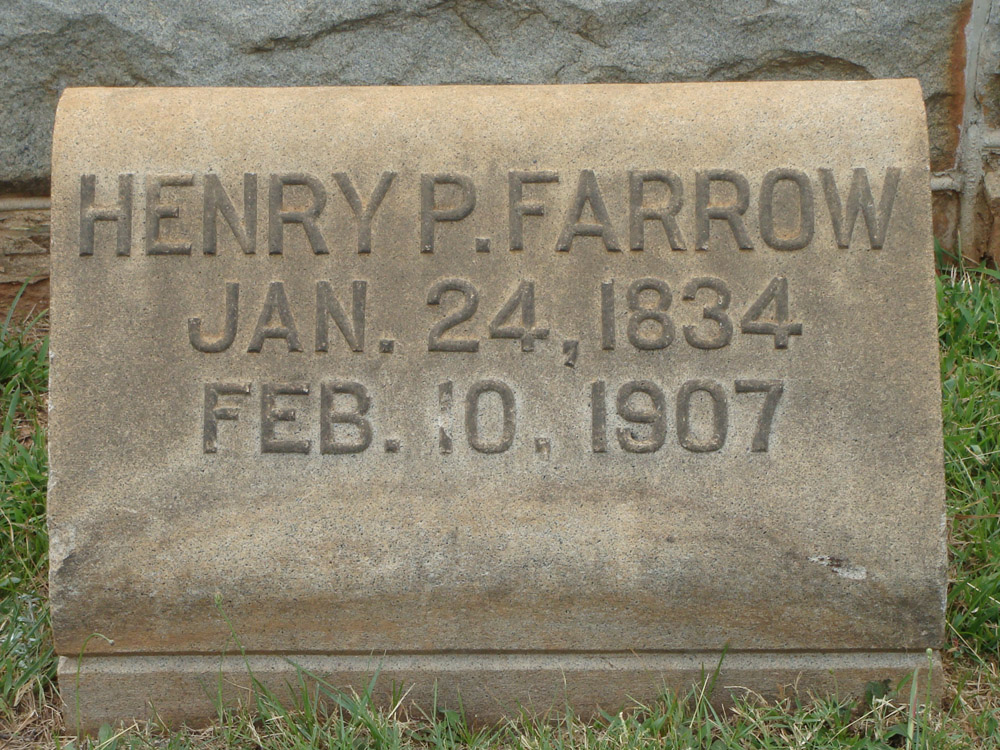After the civil war he settled in Atlanta and practiced law until made attorney general of the state under the Bullock administration. Prior to this, however, he was chosen as commissioner to carry the new constitution of the state to Washington, where he saw the impeachment trial of President Johnson, before the United States senate. Hurrying from this scene, immediately after the acquittal of President Johnson, he was the first one to reach the White House and transact business with the president, who received him graciously, saying, when advised that he was a son of Patillo Farrow: "Why, I knew him well when I was working at the tailor's trade at Laurens, and I made him some handsome broadcloth suits."
Both of Colonel Farrow's brothers were men of affairs in their native state, South Carolina. James Farrow was a member of the Confederate States Congress, and afterwards he held numberless important positions of trust under the state government. Thomas Stobo Farrow was a lieutenant-colonel of the Thirteenth South Carolina, Gregg's brigade, Jackson's corps, and made an enviable reputation as a confederate soldier. In civil life after the war he was no less distinguished.
While both of his brothers, both of whom died a number of years ago, were and remained active Democrats, the honesty of Colonel Farrow's convictions as a Union man and as a Republican gave him the respect and esteem of all who knew him, and his social status was never disturbed in the least by the fact that during the days of reconstruction he felt constrained by principle to cast his fortunes with the Republican party.
Excerpt from the article "Col. Henry P. Farrow, After Eventful Life, Is Claimed by Death," the Atlanta Constitution, 11 February 1907, page 1.
During the war, Farrow was superintendent of the Confederate states' niter and mining bureau in Georgia, a part of South Carolina, and part of Alabama. He was survived by his only children, two daughters, Mrs. John A. Whitner and Mrs. John Cooper, both of Atlanta.
After the civil war he settled in Atlanta and practiced law until made attorney general of the state under the Bullock administration. Prior to this, however, he was chosen as commissioner to carry the new constitution of the state to Washington, where he saw the impeachment trial of President Johnson, before the United States senate. Hurrying from this scene, immediately after the acquittal of President Johnson, he was the first one to reach the White House and transact business with the president, who received him graciously, saying, when advised that he was a son of Patillo Farrow: "Why, I knew him well when I was working at the tailor's trade at Laurens, and I made him some handsome broadcloth suits."
Both of Colonel Farrow's brothers were men of affairs in their native state, South Carolina. James Farrow was a member of the Confederate States Congress, and afterwards he held numberless important positions of trust under the state government. Thomas Stobo Farrow was a lieutenant-colonel of the Thirteenth South Carolina, Gregg's brigade, Jackson's corps, and made an enviable reputation as a confederate soldier. In civil life after the war he was no less distinguished.
While both of his brothers, both of whom died a number of years ago, were and remained active Democrats, the honesty of Colonel Farrow's convictions as a Union man and as a Republican gave him the respect and esteem of all who knew him, and his social status was never disturbed in the least by the fact that during the days of reconstruction he felt constrained by principle to cast his fortunes with the Republican party.
Excerpt from the article "Col. Henry P. Farrow, After Eventful Life, Is Claimed by Death," the Atlanta Constitution, 11 February 1907, page 1.
During the war, Farrow was superintendent of the Confederate states' niter and mining bureau in Georgia, a part of South Carolina, and part of Alabama. He was survived by his only children, two daughters, Mrs. John A. Whitner and Mrs. John Cooper, both of Atlanta.
Family Members
Sponsored by Ancestry
Advertisement
Explore more
Sponsored by Ancestry
Advertisement














